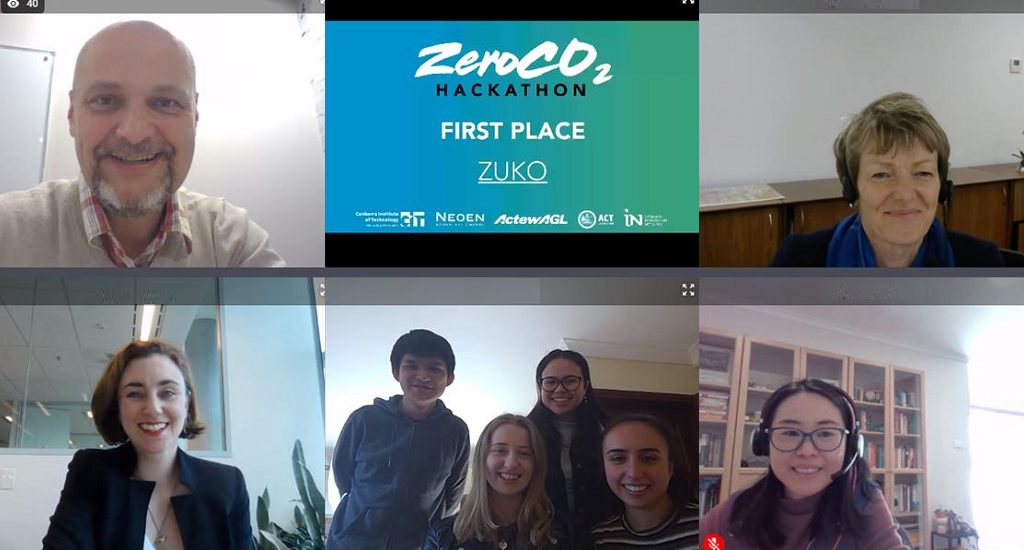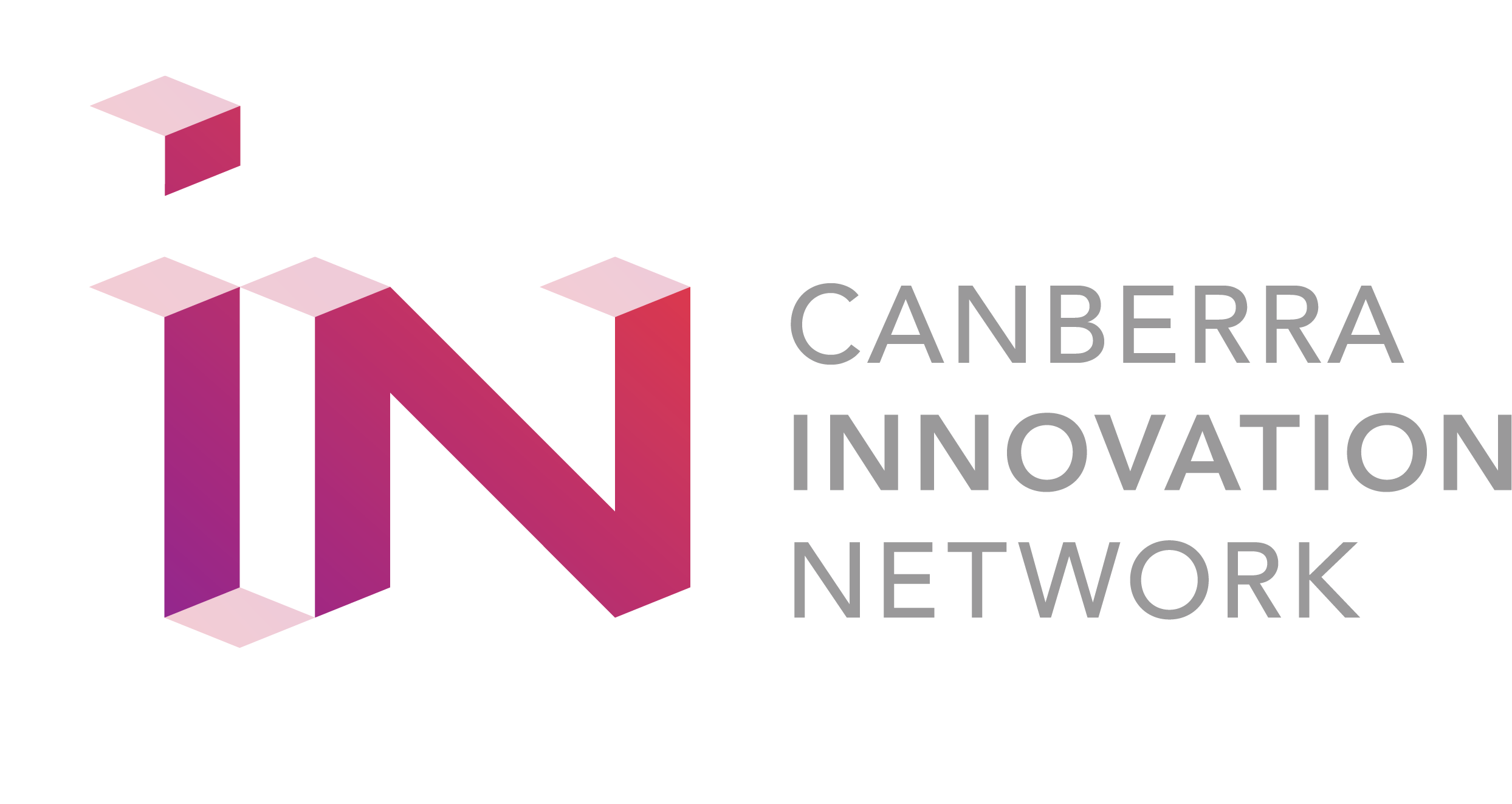- 1 September 2020
- Posted by: Canberra Innovation Network
- Category: Event News

Over two-weeks, the ZeroCO2 Hackathon saw seven teams start with an idea on how to reduce Canberra’s Carbon footprint and turn it into a pitchable innovative solution. Delivered virtually, The ZeroCO2 Hackathon was made possible by the support of the Canberra Institute of Technology, ActewAGL, Neoen Energy and delivered by the Canberra Innovation Network.
ZeroCO2 Hackathon started on Tuesday the 18th of August with a keynote from the Commissioner of the ACT Sustainability and Environment department Dr. Sophie Lewis, who set the scene. Dr Lewis spoke about the reality of the current climate challenges, and why creating innovative solutions in renewable energy and sustainability is so important for our future.
The teams were put through intensive workshops over two weeks on Customer Validation, Ideation, their Business Model, and finally a Pitching Workshop. These interactive workshops are all based off Lean Innovation Principles and push the teams to speak to real, potential customers from the get-go.
Followed by the workshops were mentor sessions where teams were able to book in with a group of expert mentors to ask questions, seek help, and receive feedback and guidance. The mentor sessions are a crucial aspect of the hackathon for the teams as it puts them in front of industry leaders and representatives with vast knowledge and connections.
To wrap it all up the teams were set to pitch their innovative solutions to an expert panel of judges where they were competing for a prize pool of $10,000 cash.
THE WINNERS:
1st Place: Zuko
Zuko came up with the product Mosssol, a moss panel system that combines green walls and solar panels to offset carbon and generate electricity. The louvre window design can be adapted into portable, free standing partition walls in both residential and commercial sectors to help regulate air quality and climate control.
This is the second hackathon delivered by the Canberra Innovation Network that Zuko has competed in, with team member Ollie Viant saying “we loved competing in such a nurturing environment where we made great connections with both the mentors and opposing teams! Our team will definitely be back for the next hackathon!”
2nd Place: Rexergy
Rexergy created a small device that simply communicates when it’s a good or bad time to use energy by changing colour. The device glows green to let you know that you’re using clean energy such as solar, and glows red when you are using dirty energy, like fossil fuels.
3rd Place: OneStopSolar
OneStopSolar presented a website prototype that calculates the best sized solar panel and battery system for your building (home or office) and then lists all of the local providers. Their website will be able to predict the optimal installation and operation of your energy assets.
“We love collaborating on events like the ZeroCO2 hackathon because of the energy and the unique solutions they generate. We get teams made up of researchers to entrepreneurs, engineers to students, all benefiting from this vibrant environment where their projects and innovations foster into real viable innovation-based businesses. We are super excited to be collaborating on two more events this year as well!” said Petr Adamek, CEO of the Canberra Innovation Network.
Hackathons are an intense and challenging way to go from innovation to prototype in a pressure-cooker type environment. The teams are pushed to innovate and pivot constantly in a way that generates new ideas and solutions in a short amount of time.
If you are interested in getting involved in future events, sign up to our newsletter and stay in the loop.

